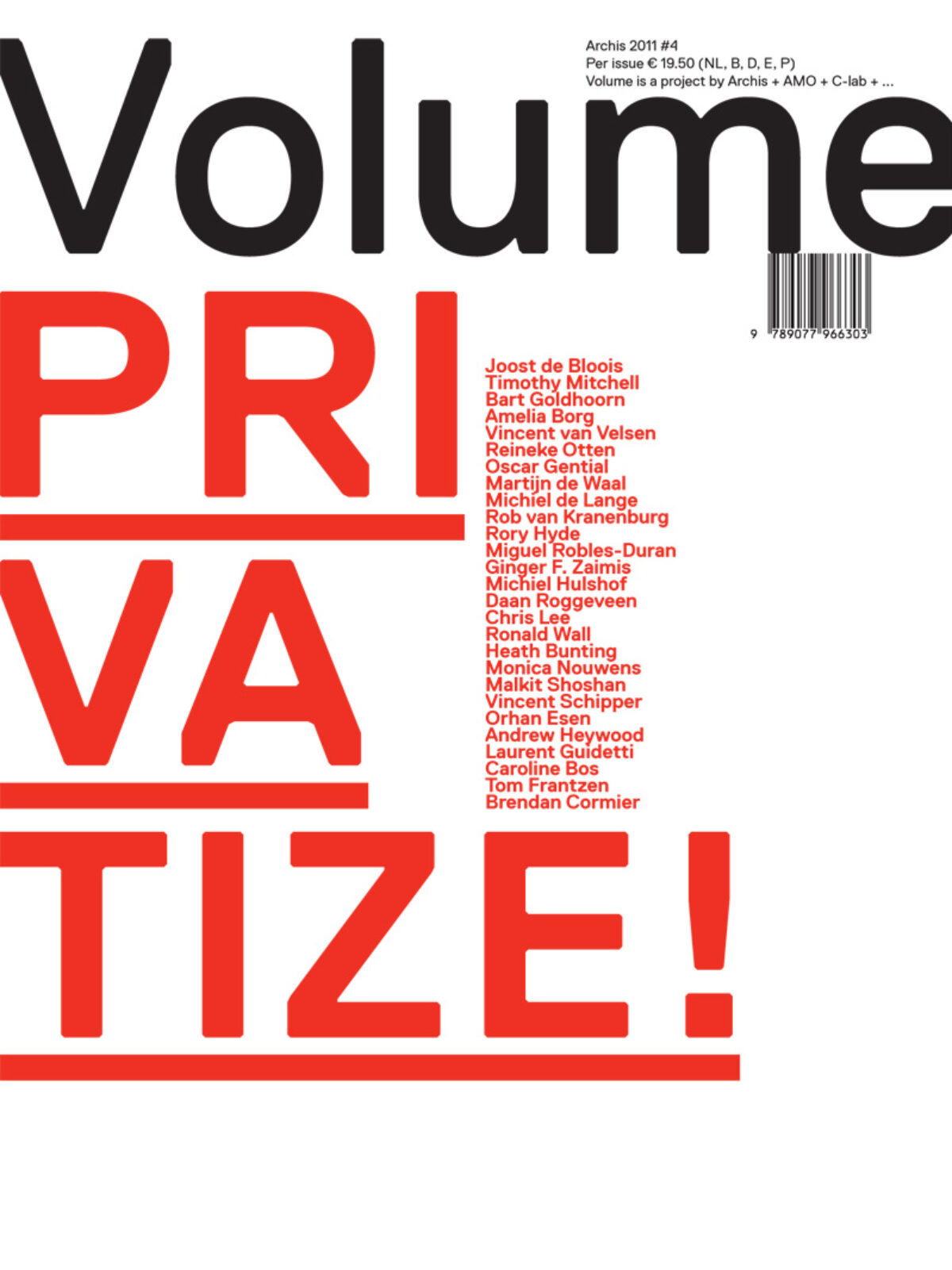A statement* VOLUME has decided not to bring a positive contribution to the Sustainability debate. VOLUME believes that too many matters, and essential ones, are not voiced in this debate, as regards the social and political status of Design, as regards the ideological functions and the mythology of environment. In these circumstances, any participation could not but reinforce the ambiguity and the complicity of silence which hangs over this debate. So we prefer to present a text expressing our positions. The burning question of Sustainability has neither suddenly fallen from the heavens nor spontaneously risen from the collective consciousness: It has its own history. In the Seventies, Reyner Banham has clearly shown the moral and technical limits and the illusions of sustainability practice. He didn’t approach the social and political definition of this practice. It is not by accident that all the Western governments have now launched this new crusade, and try to mobilize people’s conscience by shouting apocalypse.
Did you know? Cities have always been shaped by food. Different systems of food production, storage, distribution, and consumption patterns affected the form of cities in history, from the first cities of Mesopotamia, to the proto-hydroponic terraces of Machu Picchu, from the post-war Western cities to the Southern Megalopolis. Our food system is the product of the so-called Green Revolution, begun in the Fourties. But today the Green Revolution shows its limits. Of course, it is criticized by ecologists and anti-globalization activists for the damages it causes to the environment and for its negative consequences for the poor in developing countries. But also, seems that the Green Revolution techniques are no longer profitable for the agriculture business. Therefore, a new, Greener Revolution is about to come.


